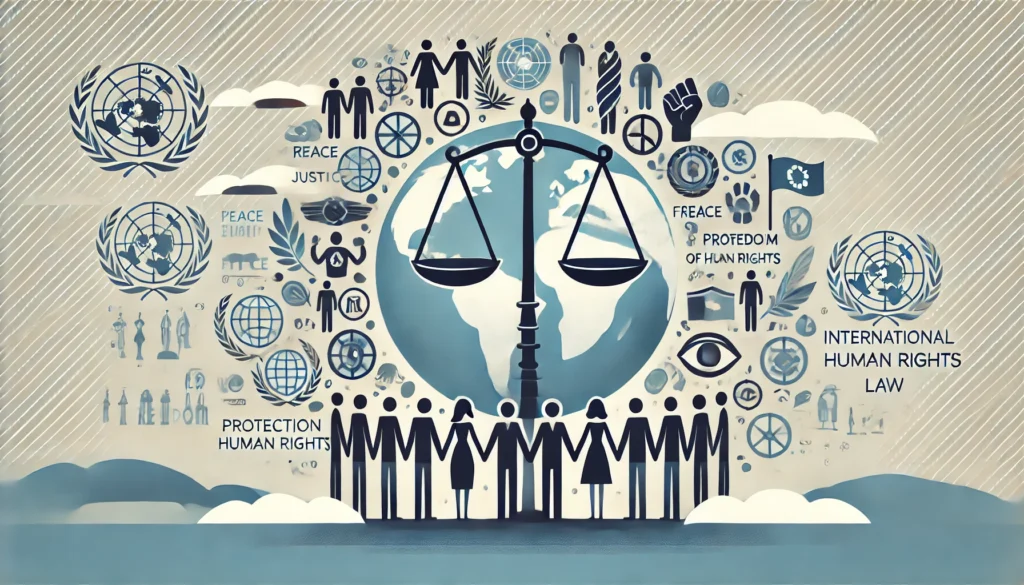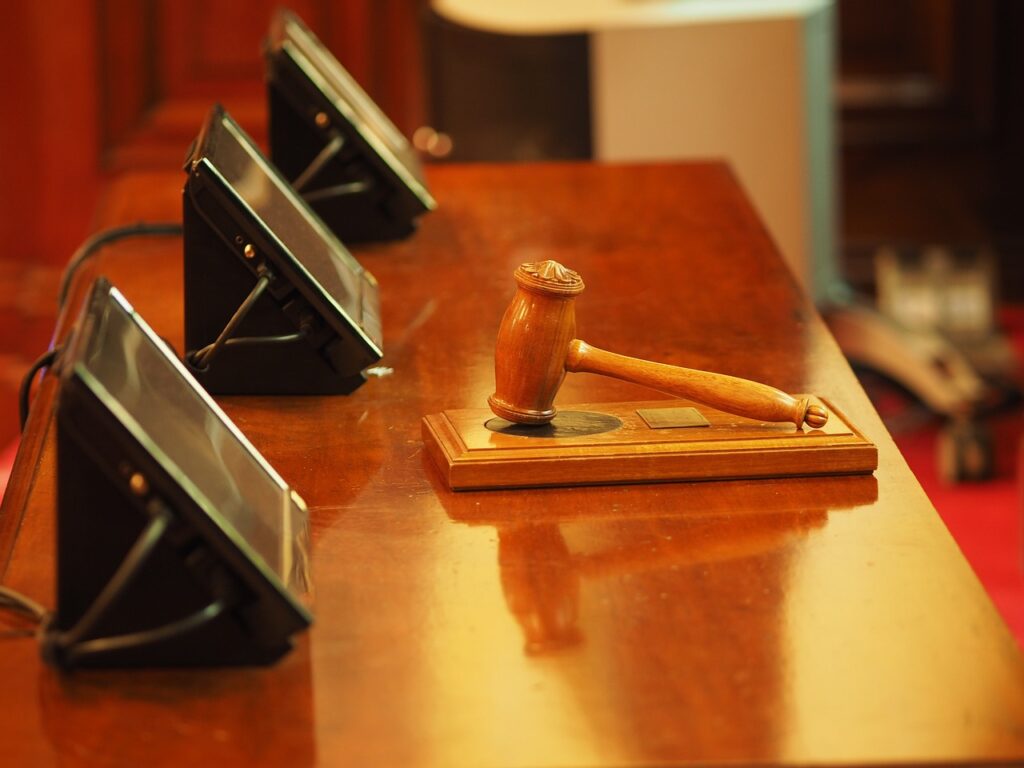Published On: 25th October, 2024
Authored By: Arko Saha
ADAMAS UNIVERSITY
OVERVIEW:
The Supreme Court gained the moniker “watchdog of democracy” when it considerably broadened the application and interpretation of Article 21 of the Indian Constitution in the Maneka Gandhi v. Union of India case. The “Golden Triangle” rule was developed by the Supreme Court in this case. For all the correct reasons, this ruling attracted the greatest attention and gratitude. The majority of Supreme Court rulings have altered the scope of Indian politics and law and established precedents.
FACTS[1]:
- This arbitrary act of the External Affairs Ministry was justified to be in the interest of the general public. After receiving such a letter, the petitioner wrote to the Regional Passport Office inquiring as to the reason for the letter to which the authorities did not respond.
- After receiving no response the petitioner filed a writ petition in the Hon’ble Supreme Court under Article 32, for the violation of her fundamental rights protected by Articles 14,19 and 21 of Part III of the Indian Constitution. She even challenged section 10(3)(c) of the Passport Act to be Ultra vires to the constitution of India.
- The petitioner claimed that her right to personal liberty as protected by Article 21 was infringed when her passport was seized without any reasonable cause. The Hon’ble Supreme Court previously even held in its judgement that the right to travel abroad was included in the right to personal liberty[2].
- In response to the allegations, the respondent contended that it was in the “interest of the general public “ that they could not reveal any reasons behind such an administrative order.
ISSUES :
- What is the scope of Fundamental Rights outlined in Part III of the Constitution and are they absolute guarantees?
- Is the “Right to Travel Abroad” included in Article 21?
- Are there any connections between rights protected by Articles 14, 19 and 21 of the Indian Constitution? What is the scope of “Procedure established by law”?
- Is section 10(3)(c) of Passport Act 1967 violative of Fundamental Rights?
- Does the order of Regional Passport Officers contravene principles of natural justice?
ARGUMENTS OF THE PETITIONERS[3]:
- The State has violated the petitioner’s Fundamental Rights of freedom of speech, expression, life, personal liberty, right to travel abroad and right to freedom of movement by virtue of the administrative order which seized her passport on July 4 1977.
- Articles 14, 19 and 21 all contain provisions that are not mutually exclusive. They should be read in conjunction with one another. Adherence to natural justice principles and a genuine spirit of constitutionalism can only be achieved through cumulative reading and sequential interpretation
- Although India may not have embraced the American notion of “due process of law” the legal process regardless needs to be reasonable, equitable and free from any arbitrary action
- The right to life and personal liberty guaranteed by Article 21 are violated by Section 10(3)(c) of the Passport Act
- The most important principle of natural justice, Audi Alteram Partem i.e. the right to be heard was violated. The idea behind the emergence of Fundamental Rights embodies the essence of the principles of natural justice and is not mentioned specifically in any paragraph of the Constitution
CONTENTIONS OF THE RESPONDENTS:
- The respondents contended that confiscating passports was to compel petitioners to appear for a hearing before a government committee.
- Relying on the AK Gopalan case, respondents argued that traditional principles of natural justice could not be applied to the interpretation of the word “law” under Article 21. A strict interpretation of personal liberty is necessary.
- The respondents also contended in this case that the concept of “ Procedure established by law “ under Article 21 is not required to qualify the reasonability test.
- The concept of “Due process of law” has not been mentioned in the Constitution giving a clear indication that the framers did not want to include it.
JUDGEMENT:
The judgement of this landmark case was delivered on 25th January 1978 altering the landscape of the Indian legal system. Given by a 7-judge bench, this judgement widened the scope of Article 21 thereby realising the goal of developing India into a welfare state as promised in the Preamble. The following was held:
- Personal Liberty was held to be interpreted widely avoiding any restrictive interpretation.
- It was held that sections 10(3)(c) and 10(5) of the Passport Act are administrative orders and the same cannot be challenged for being unfair, unjust and unreasonable.
- The Court determined that since the petitioner was not subjected to discrimination, Section 10(3)(c) did not violate Article 14 of the Indian Constitution. Additionally, the Court determined that Section 10(3)(c) is constitutional because the Passport authority has the authority to revoke or suspend a passport for reasons of national security. Nonetheless, in this instance, it was capricious as the authorities failed to provide a legitimate rationale for seizing the passport. The petitioner in this case was denied the right to the doctrine of Audi Alteram Partem, which means to let the other side be heard.
- The Supreme Court overruled A.K Gopalan’s case in its decision in Maneka Gandhi v. Union of India. The ruling stated that in order to achieve the principles of natural justice, Articles 14, 19, and 21 must be read and interpreted collectively rather than separately in water-tight compartments. The Court established the “golden triangle” or “trinity” rule, stating that Articles 14, 19, and 21 are related. The Supreme Court ruled that a law that denies someone their “personal liberty” must also pass the tests of Articles 14 and 19, in addition to Article 21.
CONCLUSION :
The interconnection the ruling established between Articles 19, 14, and 21’s provisions was the judgement’s most significant contribution. The Supreme Court combined these provisions into a single, cohesive provision through this link. Any procedure, therefore, in order to be considered legitimate, must satisfy all of the conditions outlined in these three articles. The fundamental and constitutional right to life was thus upheld, and the scope of personal liberty was greatly expanded by this ruling. By refusing to overturn Sections 10(3)(c) and 10(5) of the 1967 Act, this ruling not only shielded citizens from the Executive’s unchecked actions but also upheld the integrity of legislative authority. The ruling made it possible for the Apex Court to include other significant rights—such as the rights to standard education, a speedy and fair trial, independence from noise pollution, clean water and air, food, and medical care—into the purview of Article 21.
References:
[1] LaunchPad, “Maneka Gandhi vs Union of India” (Launchpad IAS, February 26, 2024) <https://launchpadeducation.in/maneka-gandhi-vs-union-of-india/>.
[2] SATWANT SINGH SAWHNEY VS.D. RAMARATHNAM, ASSISTANT PASSPORT OFFICER 1967 AIR 1836
[3] Admin, “Maneka Gandhi vs Union of India (1978) – Important SC Judgements for UPSC” (BYJUS, February 5, 2024) <https://byjus.com/free-ias-prep/maneka-gandhi-case-1978-sc-judgements/>.



